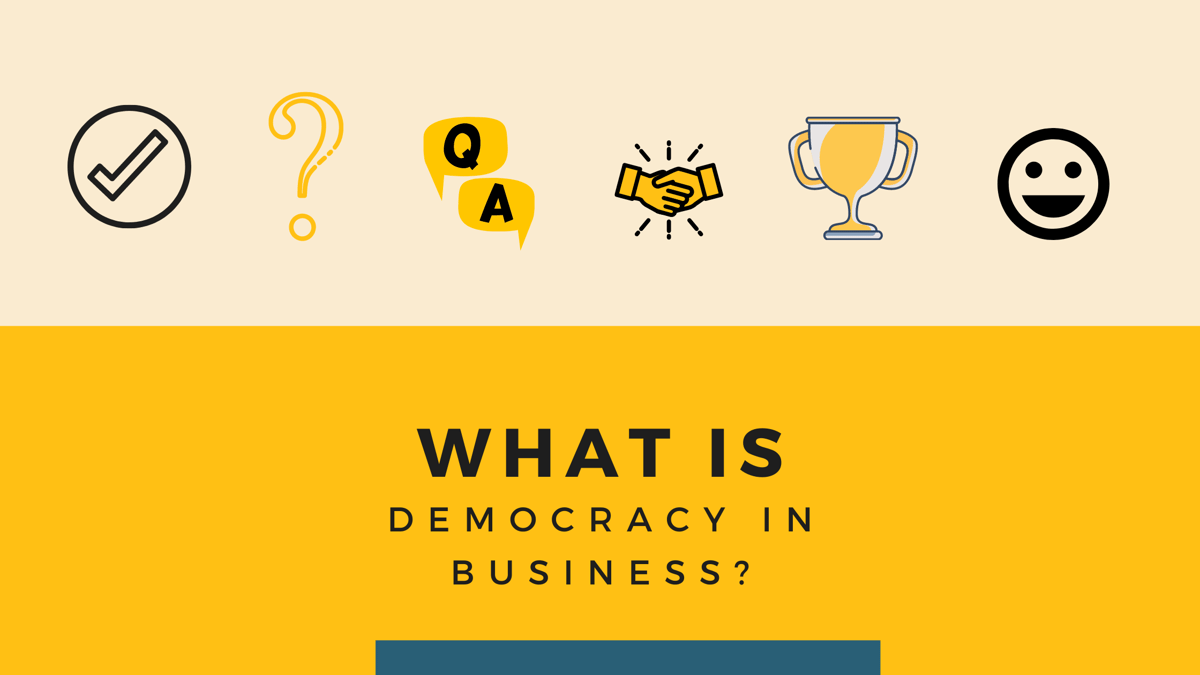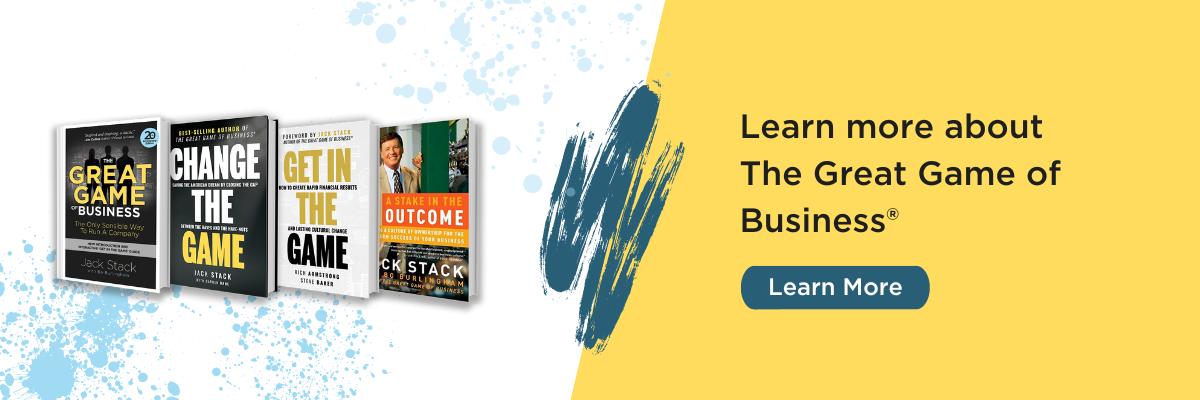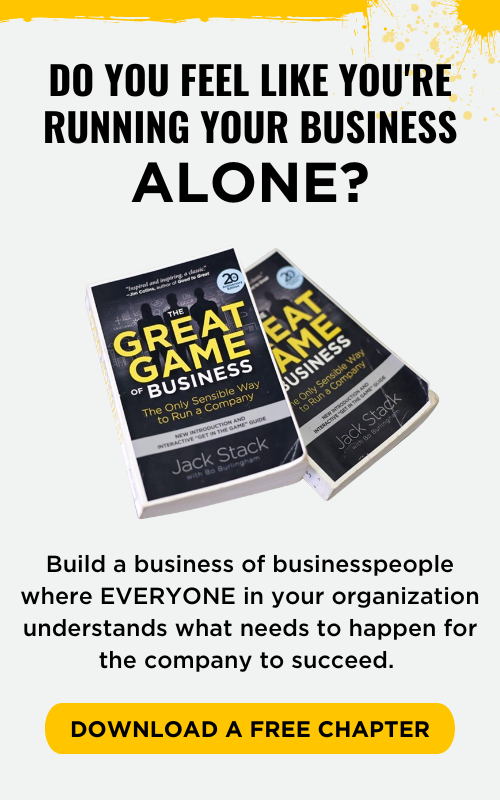
We run SRC with a lot of participation, but it is not a democracy in the political sense of the word. A political democracy derives its authority from the consent of the governed. A company derives its authority from the consent of the marketplace.
The people who work for a company may think it’s just terrific, but they’ll have to work somewhere else if the company doesn’t make money or runs out of cash. So the market tells us what a lot of our decisions have to be.
The trick is to recognize what the market is saying and adapt accordingly.
Nevertheless, there are more possibilities for democracy in business than people realize, even beyond employee ownership.
Workplace Democracy vs. Employee Empowerment: Is there a Difference?
According to the Center for Learning in Action, democracy in the workplace is "the application of democratic practices, such as voting, debate, and participatory decision-making systems, to the workplace."
People who own stock in public companies have tremendous power. Their input matters and affects the trajectory of that company. But many don't make use of it. Why?
There has never been a really important decision in this company that hasn’t been reached by acclamation, if not a unanimous vote. Every major decision is talked through in advance — multiple perspectives, ideas, and solutions are brought to the table.
People are asked to contribute, to say whatever they think. Do we want to bring everyone in as shareholders? Do we want to grow? Do we want to decentralize?
When we began thinking about decentralization, we talked to everybody in the company. I have folders of notes from the meetings we held. First I went to the supervisors. Then we went to the entire workforce to find out what they wanted. We took their wants to the management team, and we tried to figure out how we could afford them.
Out of all those discussions came the final plan: decentralization.
Democratic Leadership
In business, it’s the head of the company who decides how the company is going to be run, and I have decided to use a democratic process. I ask people to contribute, vote, participate, and have input. I have a lot of trust in that process.
I’m trying to find a system that is simple, that people can understand, and that they can follow. I want to give them a game plan that allows them to make their own decisions. I want them to see how their decisions fit into the overall puzzle.
Making the workplace more democratic meant implementing the three pillars of The Game™: Education. Empowerment. Engagement.
Educating the Workforce Fuels the "Equity Model" of Business
So you have to educate them first. Without education, you don’t have democracy. All you have is manipulation. There is no democratic process if people don’t have any idea what you’re talking about. The better-educated people are, the more democratic they can be, and the better it will work.
At a certain point, growth becomes an obstacle to democracy, because you have to keep bringing new people up to speed. That may involve keeping the others on hold— saying, “Wait a while till these guys catch up.” That’s a problem we struggled with. It was one reason we began to set up subsidiaries.
Smaller Company Size Means More Democratized Solutions
Here's what we found. If we created smaller businesses, we could let them take the message to people, and get the onboarded, trained, and ready to hit the ground running.
Small businesses can communicate more quickly and effectively with their staff. And when you’re operating on a small scale, you have more time to dedicate to each new employee. Whereas when you’re operating on a large scale, the problems all get magnified; you're overwhelmed by too many plates spinning and tasks to manage.
Democracy Positively Affects the Workplace
Back at the time of the American Revolution, Thomas Paine called his pamphlet Common Sense because he thought democracy was a matter of common sense. I feel the same way. The way I run this company is just plain common sense. It’s the fairest way of doing things. There are so many unfair things in the world, why not create an environment where at least you try to make things fair?
This system works. That’s why I use it. I don’t know of any way to have a more successful company. It works because it gets people to contribute, participate, learn, and grow. Democracy doesn’t work well if people don’t participate. That's where culture comes into play. One of the many problems political democracy has in America is the lack of participation from the electorate.
Democracy in Business Lends to Greater Engagement & Productivity
At SRC, we get people to contribute by telling them the truth about business. Transparency through open-book management, where we lay out the numbers and strategize creative solutions for meeting yearly and quarterly profitability goals.
This is where the "Game" in Great Game of Business comes into play. The day-to-day dealings of doing business turns into a competitive game to see who can win the next bonus, the gift card, company-wide shout-out, or additional PTO.
Our methodology goes straight to the heart of what makes classical capitalism successful: incentive. Without a paycheck, how many of us would show up for work? Exactly. Open book management, team huddles, and MiniGames™ are what allows an employee to understand that if they contribute, they’ll get something back. And in the end, so will you: worker loyalty, productivity, and long-term, sustainable profitability.
.png)







.png)




-5.png)

